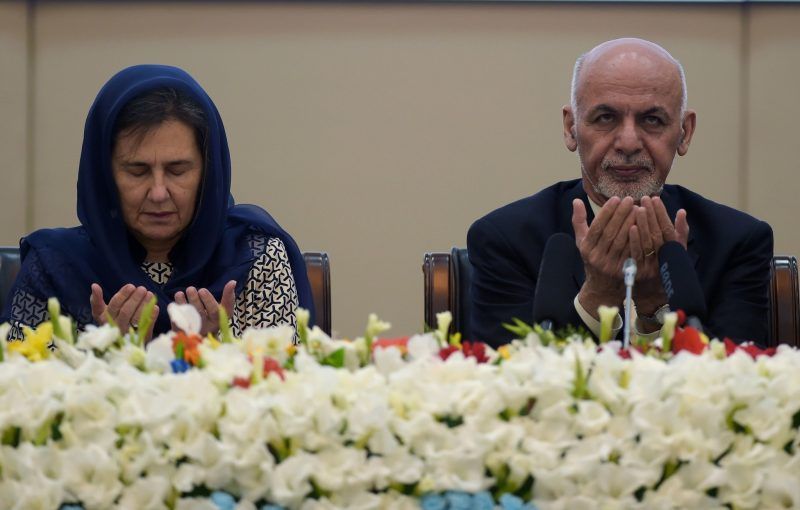
On Feb. 28, President Ashraf Ghani of Afghanistan made the most comprehensive offer inviting the Taliban to join direct, formal peace talks with the Afghan government. The offer, made without preconditions, recognizes the role of the Taliban in Afghan politics and seeks to proceed toward a comprehensive peace agreement.
President Ghani’s offer is the result of the Kabul Process, which saw delegates from 30 countries and international organizations — including the United Nations, NATO and the European Union — gather and deliberate in Kabul.
The announcement of the peace initiative was preceded by months of national consensus building in Afghanistan. Members of the High Peace Council, the inclusive body of Afghan elders formed to steer efforts for peace and dialogue; the government’s chief executive, Abdullah Abdullah; and President Ghani had long deliberations and consultations with Afghan political figures, members of civil society, clergy, women and youth. They found overwhelming support for the initiative to reach a political settlement with the Taliban.
The peace offer is underpinned by our belief in the common equality of all Afghans and their right to live in peace and dignity. We believe that this offer will give the Taliban the opportunity to organize as a legitimate political force, pursue their goals through peaceful means and join the political process.
The Afghan government is firmly committed to addressing the core concerns and demands of the Taliban, including the future presence of the international military forces, amendments to our constitution and the release of Taliban prisoners.
The initiative also offers removal of the names of Taliban commanders from the sanctions lists maintained by the United Nations and others, which limit their movements and hinder their inclusion into mainstream Afghan society and polity.
Throughout the peace process and after the end of hostilities, the Afghan government will ensure the security of the Taliban and their families and help resettle former combatants as part of an agreement.
The government and people of Afghanistan were heartened by the support offered by the international community to our peace offer to the Taliban. We found strong endorsements for our commitment to guaranteeing the human rights of all Afghans, especially women. We are committed to maintaining the inclusivity of the Kabul Process with a prominent role for women.
We have further showed our flexibility by offering to meet with the Taliban either in Kabul or elsewhere in a mutually agreed location. Our aim in the initial meetings would be to have substantive discussions to demonstrate our commitment and gradually move toward a negotiated agreement and a peace accord.
Members of the international community pledged during the Kabul Process that they would strongly support the Afghan-led and Afghan-owned dialogue for peace, that they would continue to send unified messages to ensure its success.
The Afghan government has welcomed the offers from Islamic nations such as Indonesia, Saudi Arabia, Qatar and others to use their positive influence to support our peace process.
Various respected scholars of Islam from Afghanistan and Pakistan will be meeting at a conference with Indonesian scholars in West Java later this month. They will draw on Islamic teachings and their religious authority to formulate ways to lend support to the peace process. Given the influence of religious scholars in our part of the world, such forums will go a long way in supporting the demand and desire of every Afghan for peace.
As we strive for a political settlement, we continue to ensure that the Afghan National Defense and Security Forces stay strong and retain the capacity to defend the nation against acts of violence and terrorism by domestic, regional and international terrorist groups operating in Afghanistan and the region.
This parallel fight against transnational terrorism to complement the peace process would not be possible without the continued support of the United States, NATO and our partners in the region. In addition to their military assistance, we look forward to their robust diplomatic support to help ensure the success of the Afghan-led and Afghan-owned peace process.
The ball is now in the Taliban’s court: They must match our will, determination and courage to step forward for peace.
Hekmat Khalil Karzai is the deputy foreign minister of Afghanistan.
